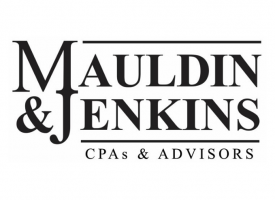The deductibility of business expenses made with Paycheck Protection Program loan proceeds has been a source of confusion and some contention since the inception of the program. With tax season approaching and the forgiveness of most of these loans still to be decided, borrowers and their accountants were unsure how to proceed. Now the IRS has released guidance that provides clarity and announced a safe harbor procedure that should ease business owners’ anxieties as they move toward potential forgiveness.
A number of government officials (not to mention business owners) had hoped the rules would be altered to allow borrowers to deduct covered expenses from taxable income. The IRS has held firm, however, insisting that expenditures made with loan proceeds cannot also be deducted from gross business revenue. In Revenue Ruling 2020-27, the agency lays out that policy with more granularity:
Borrowers that hold a reasonable expectation that their loans will be forgiven may not claim as business expenses any costs that are otherwise deductible, if these costs were covered by PPP loan funds.
This policy holds true whether or not the borrower has applied for forgiveness at the end of the taxable year.
A ‘reasonable expectation of forgiveness’ is key to this rule. Any borrower who intends to apply for forgiveness and believes that some or all of the loan qualifies for forgiveness under the terms of the PPP must assume that forgiveness will be forthcoming, and therefore that covered expenses made with these funds are disallowed as deductions for the taxable year in which the loan was received.
And now for the good news: Revenue Procedure 2020-51 defines a safe harbor procedure that allows PPP borrowers to recapture the value of those lost deductions should the loan not be forgiven. Loan recipients can follow the safe harbor procedure to deduct those expenses from taxable revenue
- after receiving confirmation that their application for forgiveness has been rejected, or
- if they decide not to request forgiveness after all.
The timing of loans, forgiveness applications and forgiveness decisions has been of prime concern for business owners. Under the safe harbor provisions just released, this problem becomes less of a worry.
- If the forgiveness request is denied in part or in full before filing a tax or information return for 2020, borrowers can deduct expenses (only for expenses made from the portion of the loan that was denied forgiveness) on their timely filed 2020 return, including extensions.
- Borrowers can also file an amended return or administrative adjustment request for 2020 to claim these deductions, should the denial come after the borrower has filed a 2020 tax or information return.
- Borrowers who decide not to request forgiveness may deduct the expenses made with PPP funds on their 2020 tax return or in the tax year in which the decision is made to not (ever) request forgiveness.
Today’s updates leave some important questions unanswered, as far as how PPP loans interact with various tax credits and deductions. There is still time for Congress to act and make the use of forgiven PPP loan proceeds on business expenses deductible.
The business advisors at Mauldin & Jenkins remain alert for updates to the PPP and other provisions of the CARES Act, so we can serve as a reliable source of guidance and information for you. Please contact our team with questions or concerns; we’re here to help you through all the challenges of 2020 and beyond.


